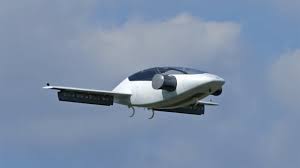
Breaking News
 The Vain Struggle to Curb Congressional Stock Trading
The Vain Struggle to Curb Congressional Stock Trading
The Tesla Model S Is Dead. Here's Why It Mattered
 America's First Car With Solid-State Batteries Could Come From This Little-Known EV Maker
America's First Car With Solid-State Batteries Could Come From This Little-Known EV Maker
 POWERFUL EXCLUSIVE: Learn Why Silver, Gold, & Bitcoin Plunged After JD Vance Announced...
POWERFUL EXCLUSIVE: Learn Why Silver, Gold, & Bitcoin Plunged After JD Vance Announced...
Top Tech News
 How underwater 3D printing could soon transform maritime construction
How underwater 3D printing could soon transform maritime construction
 Smart soldering iron packs a camera to show you what you're doing
Smart soldering iron packs a camera to show you what you're doing
 Look, no hands: Flying umbrella follows user through the rain
Look, no hands: Flying umbrella follows user through the rain
 Critical Linux Warning: 800,000 Devices Are EXPOSED
Critical Linux Warning: 800,000 Devices Are EXPOSED
 'Brave New World': IVF Company's Eugenics Tool Lets Couples Pick 'Best' Baby, Di
'Brave New World': IVF Company's Eugenics Tool Lets Couples Pick 'Best' Baby, Di
 The smartphone just fired a warning shot at the camera industry.
The smartphone just fired a warning shot at the camera industry.
 A revolutionary breakthrough in dental science is changing how we fight tooth decay
A revolutionary breakthrough in dental science is changing how we fight tooth decay
 Docan Energy "Panda": 32kWh for $2,530!
Docan Energy "Panda": 32kWh for $2,530!
 Rugged phone with multi-day battery life doubles as a 1080p projector
Rugged phone with multi-day battery life doubles as a 1080p projector
 4 Sisters Invent Electric Tractor with Mom and Dad and it's Selling in 5 Countries
4 Sisters Invent Electric Tractor with Mom and Dad and it's Selling in 5 Countries
Interview: The next steps for Lilium's eVTOL air taxi service

Leaders in the field would include Germany's Lilium and Volocopter, secretive Californian company Joby Aviation, Google co-founder Larry Page's Kitty Hawk startup, and Vahana, which is funded by Airbus. A potential disruptor has popped up recently in the form of US-East-Coast-based Alakai Skai, which is making a multicopter air taxi that uses liquid hydrogen fuel instead of lithium batteries, potentially offering a huge range and endurance advantage.
Each has its own take on aircraft and service design, but all are working toward the ultimate goal of putting electric aviation into the commuting mix – and all are promising Uber-equivalent per-mile prices that'll make them affordable for a much wider range of people than helicopters have ever been.
Lilium, riding on a US$100-million-plus wave of investment, notably from China's Tencent conglomerate, has been a hive of activity in the last few years, leaping from 70 employees in 2017 to more than 350 today. It has opened one manufacturing plant for its electric VTOL jets, and is building another, and it's hiring like mad with 150 jobs on the board right now and up to 500 more to come when the new manufacturing facility comes on line.



